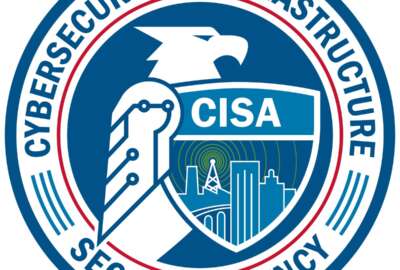Easterly hails CISA’s ‘world-class’ talent in final address
CISA grew rapidly during the Biden administration, recruiting technical experts to lead key initiatives like "secure by design" and cyberthreat hunting teams.
The Cybersecurity and Infrastructure Security Agency’s workforce more than doubled during the Biden administration, with CISA’s outgoing director praising the agency’s “world-class” cyber talent.
CISA Director Jen Easterly said the agency has hired more than 2,200 people since July 2021. CISA’s staff now totals more than 3,300 employees.
During a Wednesday event hosted by the Foundation for the Defense of Democracies, Easterly noted her agency is still small compared to partners like the FBI and the Defense Department. But she said CISA hired “some world-class technical experts” in recent years.
“Continuing to be able to hire and retain that kind of talent — talent that could be making a hell of a lot more money in the private sector — will be the key to enabling us to continue to grow in a way where we can really have an impact on driving down risk to the American people,” Easterly said in what will likely be her last public address before she steps down Jan. 20.
Under Easterly, CISA has positioned itself as the “nation’s cyber civil defense agency.” After being established as a stand-alone agency in 2018, the cyber agency’s authorities and workforce have grown rapidly, largely in response to major cyber incidents ranging such as SolarWinds and Colonial Pipeline.
The agency has also recruited technical experts to lead its Secure-by-Design campaign, open source software security efforts, and other key initiatives.
Easterly said CISA also boasts a “world-class” cyberthreat hunting team that has helped detect and evict threats to critical infrastructure, including the China-connect “Volt Typhoon” hackers.
CISA threat hunters also first detected the “Salt Typhoon” hackers, Easterly revealed Wednesday.
She said the hunt team detected the Salt Typhoon campaign on government networks, eventually leading law enforcement to discover the hackers had compromised vast swaths of global telecommunications infrastructure.
CISA has used a range of authorities to recruit new employees. The agency used the Cyber Talent Management System, which provides the Department of Homeland Security with special pay and hiring authorities, with “scalpel-like precision,” Easterly said.
“We have used this to bring in top talent who want to come in for mission, but they have competing offers that are much, much, much higher than what we can pay them, but we’ve used it in a scalpel-like way to bring in the top of the top,” she said.
Separately, special “cyber pay” has helped CISA retain cyber experts.
“That’s also something that I think is important, that we need to continue to use in a way that really retains the best and the brightest,” Easterly said.
Additionally, Easterly called for expanding programs like the National Science Foundation’s “Scholarship for Service” CyberCorps program, which provides scholarships to students in exchange for spending time serving in government.
“I’m a big believer that you need universal service,” Easterly said. “It doesn’t need to be military service, but maybe it’s CyberCorps, maybe it’s Peace Corps, maybe it’s the military, maybe it’s whatever, but if I could have more of these shiny, young, incredibly, brilliant students who are interning at CISA and then join our team, maybe not for a career, maybe for three, four years, that would make such a difference in the workforce across the nation.”
Copyright © 2025 Federal News Network. All rights reserved. This website is not intended for users located within the European Economic Area.
Follow @jdoubledayWFED






